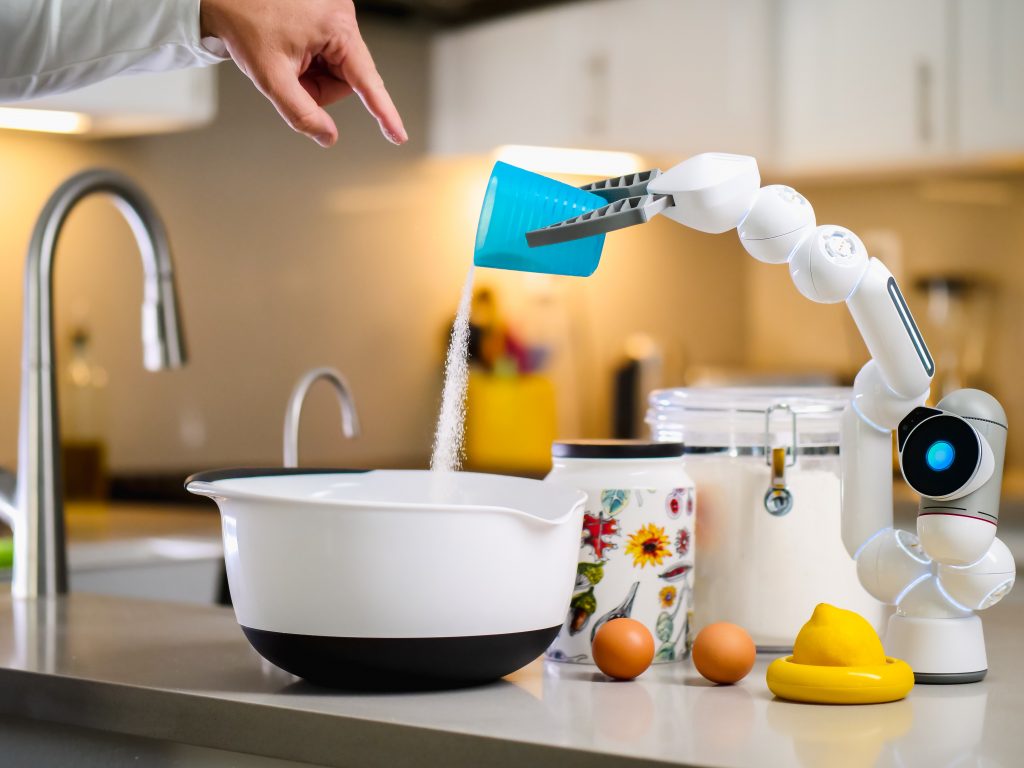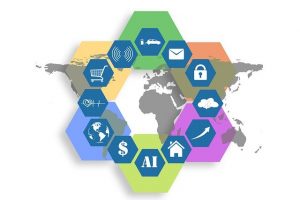
How Artificial Intelligence Will Change The World
From its origin outside of a company’s innovation laboratories to the present, when people are starting to realise that it has the potential to revolutionise businesses from the inside out, AI’s function has changed drastically.
By 2024, product promotion will be performed by AI at a level higher than that of people, and by 2031, surgical operations will be performed by AI at a level higher than that of humans. So let’s start by talking about how AI will change the world.
What is AI?
Artificial intelligence (AI) is a term used to describe systems or robots that simulate human intelligence to take out tasks and may iteratively improve themselves based on the data they collect. AI may appear in many different forms. Here are a few illustrations:
- Chatbots use artificial intelligence to understand customer needs better and provide more effective replies.
- Intelligent assistants employ AI to decipher important data from enormous free-text databases to optimise scheduling.
- Recommendation engines can produce automatic choices for TV shows based on customer viewing habits.
Artificial intelligence is much more about the process of superhuman thought and data processing than it is about any particular format or goal. Although it’s common to see images of intelligent, human-like robots engulfing the globe, AI wasn’t created to take the place of people. Its objective is to enhance human abilities and contributions significantly. As a result, it is a precious business asset.
How does AI work?
Suppliers have been scrambling to highlight how AI is employed in their products and services as interest in AI has surged. Often, they refer to AI as merely one element of AI, like machine learning. AI requires that machine learning algorithms be created and trained using specialised hardware and software. Although no one computer language is exclusively associated with AI, a few are well-known, including Python, R, and Java.
AI systems often consume large amounts of labelled training data, which then analyse the data for correlations and patterns before employing these patterns to predict future states. An image recognition computer may learn to identify and describe objects in images. In contrast, given examples of text chats, a chatbot may learn to have lifelike conversations with humans by reviewing millions of instances.
AI programming focuses on three cognitive processes: learning, reasoning, and self-correction.
Five ways in which AI is changing future
Based on recent scientific advancements in AI, below are the effects that artificial intelligence will have in the future.
1. AI in healthcare
AI will play a vital role in preventing over 86% of mistakes in the healthcare industry. AI in healthcare will help democratise the industry, benefiting patients and healthcare professionals while lowering costs and improving accuracy through predictive therapy. Artificial intelligence and predictive analytics can assist in understanding various factors that affect a person’s health (birthplace, dietary habits, local air pollution levels, and so on). Healthcare systems driven by AI will soon be able to anticipate when a person is most likely to develop a chronic ailment and offer early intervention to treat it before it worsens.
2. AI in banking
The value of AI in banking is anticipated to increase to $300 billion by the end of 2030. In the upcoming decade, artificial intelligence will dominate sectors including corporate espionage and security, driving costs, boosting productivity, and enhancing customer experiences. Robo advisors in wealth management will become widely used and change the banking industry, protecting consumers and wealth managers for a significant amount. Future banks will use AI to personalise customer experiences, services, and products. Personalization might be as essential as not needing to provide your ID card when you enter a bank branch but yet being welcomed by name and having complete knowledge of all of your past bank account activity.
3. AI in cybersecurity
Five hundred fifty-four million of the 707 million cybersecurity breaches in 2015 happened in the first half of 2016. Companies are finding it challenging to stay on top of hackers. USC academics claim that AI’s self-learning and mechanical skills can safeguard data more reliably and affordably, keeping people safer from terrorism or even minor identity theft. AI-based techniques hunt for patterns linked with harmful computer viruses and programmes before they can steal enormous quantities of information or create damage.
4. AI in vital tasks
AI helpers will let older people live independently and comfortably in their homes for longer. AI technology will guarantee the provision of nutrient-dense meals, safe access to products on high shelves, and monitoring activities in a senior’s home. The tools for window cleaning, grass mowing, bathing, and personal hygiene might be used. Additional manual and repetitive jobs are excellent candidates for AI-based solutions. However, dangerous occupations like mining, firefighting, mine clearing, and handling radioactive materials may require AI-assisted labour.
5. AI in retail
Artificial intelligence has a promising future for retailers with many uses for better business choices. In less than 30 minutes, drones driven by AI will be able to transport things weighing up to 5 pounds. Although there is no explicit date for the commercial deployment of these drones, Amazon is currently trying to determine adequate safety and reliability of operations for package delivery. However, you may anticipate autonomous drone delivery of goods and food within the next ten years.
The future of AI in retail is not only more autonomous and individualised, but it also includes plausible scenarios like connected dressing rooms with screens, virtual racks customised based on data-defined personas, and a lot more personalization based on past behaviour and trends, which reduces the stress and confusion associated with consumer decision-making.
Wrap up
Artificial intelligence’s future is quickly approaching! The time to invest in education and training to prepare for the AI era is now. The choice is yours: will you develop your skills to stay on the cutting edge, or will you visit the same industry?


